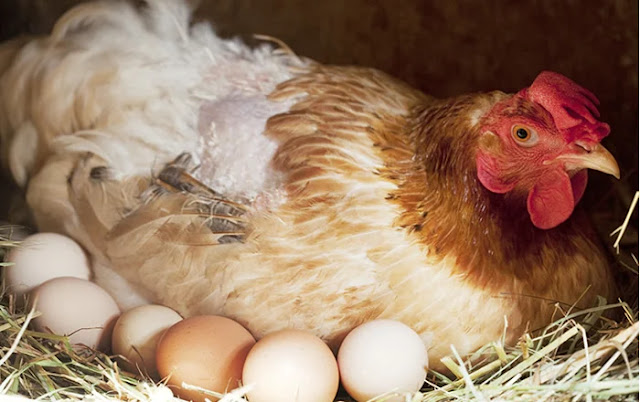WRITER: RANA TALHA
As winter bids adieu and the days gradually lengthen, poultry enthusiasts eagerly anticipate the return of fresh, farm-raised eggs. One common question that arises during this season is, "When do chickens start laying eggs after winter?"
In this article, we will delve into the factors influencing egg-laying in chickens after the colder months, providing valuable insights for backyard farmers and enthusiasts.
When do chickens start laying eggs after winter?
Chickens typically start laying eggs after winter as the days lengthen and natural light increases almost mid-February. The increased daylight triggers hormonal changes in hens, stimulating egg production. It's advisable to provide at least 14-16 hours of light per day or use supplemental lighting to encourage optimal laying.
Additionally, ensuring a well-balanced diet with adequate nutrients supports the transition from winter dormancy to active egg-laying. The specific timing may vary based on individual chicken breeds and environmental factors.
Understanding the Biological Factors
Chickens, much like other creatures, are influenced by various biological factors that affect their egg-laying behavior. During winter, reduced daylight hours and colder temperatures can lead to a decrease in egg production. As spring approaches and the days become longer, the increased exposure to natural light triggers hormonal changes in hens, signaling the start of the laying season.
The Role of Light
Light plays a crucial role in stimulating egg production in chickens. As the days lengthen after winter, the pineal gland in a chicken's brain senses the increased daylight and stimulates the release of reproductive hormones. To optimize egg-laying, ensure that your chickens receive at least 14-16 hours of light per day. Supplemental lighting in the coop can be beneficial if natural daylight is insufficient.
Breed Variations
Different chicken breeds exhibit varying responses to seasonal changes. Some breeds, known as "winter layers," are more inclined to lay eggs during the colder months. However, the majority of chickens tend to start laying or increase their egg output as spring unfolds. Familiarizing yourself with the specific traits of your chicken breed can provide valuable insights into their egg-laying patterns.
Nutrition and Health
A well-balanced diet is essential for optimal egg production. After winter, it's crucial to provide your chickens with nutrient-rich feed that supports their reproductive health. Adequate levels of calcium, protein, and other essential nutrients contribute to robust eggshell formation and overall well-being. Ensure your flock has access to clean water and a balanced diet to encourage the resumption of egg-laying.
Patience and Observation
While understanding the biological and environmental factors influencing egg-laying is essential, it's equally important to practice patience. Chickens may take some time to adjust to the changing conditions and resume regular egg production. Regularly observe your flock for signs of increased activity in the nesting boxes, as this may indicate that they are gearing up to lay eggs.
Conclusion
In conclusion, the timing of when chickens start laying eggs after winter is influenced by a combination of biological, environmental, and nutritional factors. By providing optimal conditions, including sufficient light exposure, a balanced diet, and a keen eye for breed-specific traits, backyard farmers can encourage their hens to resume egg-laying. Patience and attentive care are key as you await the delightful return of fresh, farm-raised eggs with the arrival of spring.





.jpg)
0 Comments